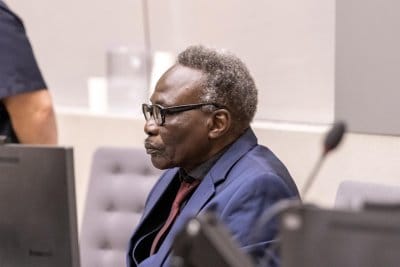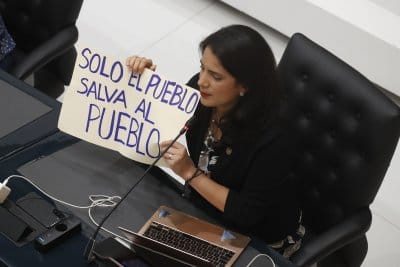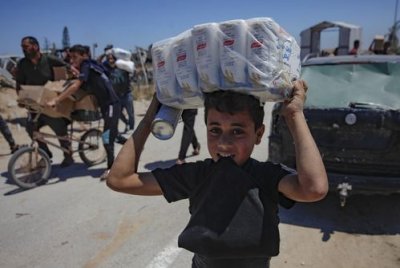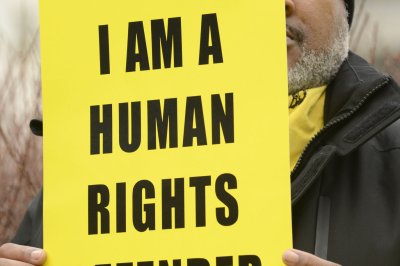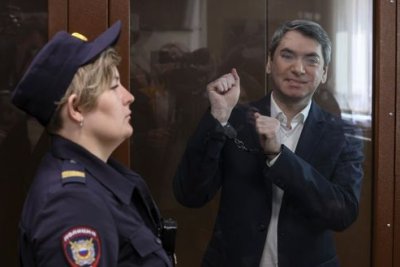Amnesty International calls U.S. attack on Houthi prison war crime

Houthi supporters shout slogans during a protest against Israel in Sana’a, Yemen, in August. Thousands of Houthi supporters protested in support of the Palestinian people. Amnesty International on Wednesday said the United States committed a war crime when it bombed a Houthi immigration prison in April. File Photo by Yahya Arhab/EPA
Oct. 29 (UPI) — Human rights organization Amnesty International said Wednesday that a U.S. airstrike that hit a Houthi detention center in Yemen in April should be investigated as a war crime.
The April attack on Saada, in the northwestern part of Yemen, was part of Operation Rough Rider and killed civilian migrants held in a Houthi detention center because of their immigration status, Amnesty said.
The migrants often come through Yemen from the horn of Africa to get to Saudi Arabia for work.
At the time of the attack, the Houthis reported that at least 68 African migrants were killed and 47 were injured.
On Wednesday, Amnesty also released a report, It is a miracle we survived: U.S. Air Strike on Civilians Held in Sa’ada Detention Centre, in which it interviewed 15 survivors and did analysis on satellite imagery and footage.
“The harrowing testimonies from survivors paint a clear picture of a civilian building, packed with detainees, being bombed without distinction,” said Kristine Beckerle, Amnesty International’s deputy regional director for the Middle East and North Africa, in a statement.
“This was a lethal failure by the U.S. to comply with one of its core obligations under international humanitarian law: to do everything feasible to verify whether the object attacked was a military objective.”
She called on the United States to give reparations to the migrants and their families, “including financial compensation. Given the air strike killed and injured civilians, the U.S. authorities should investigate this attack as a war crime,’ she said.
“Where sufficient evidence exists, competent authorities should prosecute any person suspected of criminal responsibility, including under the doctrine of command responsibility.”
The U.S. air strikes were conducted to protect the Red Sea from Houthi attacks, which had begun in response to the war between Israel and Hamas. The Houthi rebels, backed by Iran, support Hamas.
“The U.S. must conduct a prompt, thorough, independent, impartial, and transparent investigation into the air strike on the Saada migrant detention center and make the results public,” Beckerle said.
“Survivors of this attack deserve nothing less than full justice. They must receive full, effective, and prompt reparations, including restitution, compensation, rehabilitation, satisfaction and guarantees of non-repetition, through an effective and accessible mechanism.”
On April 27, CENTCOM released a statement saying, “These operations have been executed using detailed and comprehensive intelligence ensuring lethal effects against the Houthis while minimizing risk to civilians.
“To preserve operational security, we have intentionally limited disclosing details of our ongoing or future operations. We are very deliberate in our operational approach, but will not reveal specifics about what we’ve done or what we will do.”



